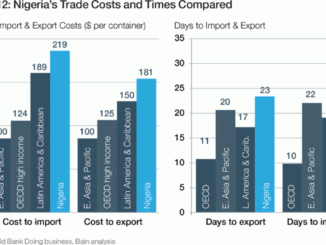
The book is about Christian theology in Africa even though the writer cannot presume a first-hand knowledge of the Church in all its shapes and forms in every African country. Dickson realistically observes that no serious study of Christian theology in Africa can with any justification ignore independent churches and their life and thought. The writer divides this invaluable text into three parts : theology in the shaping, theological uncertainty and experimentation and implications for theological education. Theological articulation has been done in the west for a long time, and theological education in the Third World has traditionally assumed the inviolability of the theological insights emanating from the west. In the first part, the writer restated several facts. Since every Christian theologizes, Dickson argues that the African too theologizes, a view that is contrary to popular thought. He examined the relevance of Christian theology, as traditionally conceived, in the Church in Africa. The role of the Scriptures, experience, tradition and culture is analyzed. The writer challenges the view that no one should believe that the concept of God is a borrowed one in the religious belief of the Africa.
Dickson gives a detailed historical account of Christianity in Africa before and after the colonial period, analyzing the effect of the polices of the western powers. There is the fact of the colonial past which remain s in some respects a present reality. Evidence of influences from outside is to be encountered everywhere ? in the schools, colleges and universities; in the civil service, military, Church etc. In the second part, Dickson analyses theological uncertainty and experimentation. Christian evangelism as it was carried out by European missionaries in the early days of missions in Africa, and also by those African preachers whom the missionaries had trained as their co-workers, tended to assume the destructiveness of African religion and culture. Missionary preaching, especially in nineteenth century Africa, reveals not only a lack of appreciation of African life and thought, but also a presentation of the Christian message that sometimes detracted from the fullness of its meaning and significance. Expressions such as adaptation, indigenisation, translation, Africanisation and naturalization (terms often used interchangeably) have been pressed into service to describe the nature of the theological task facing the church in Africa. Perhaps the best known of these terms is indigenisation which holds that western cultural elements should give way to elements of African culture, thereby placing the gospel message in a relevant setting. Dickson guides against a loose use of the term African theology and explains demonstrates how it should be interpreted as Christian theology in Africa. He assesses the contributions of Black and Liberation theology.
Commenting on the cultural continuity with the Bible, two unavoidable guidelines are realistically presented : it is important to know the biblical story as it is; and, the exegete should come to the Bible armed with questions relevant to his circumstances. No matter what the cultural perspective of the Christian might be, the matter of Christ”s death and its significance cannot but be considered most central; Christians everywhere, from whatever cultural background, must react to this central belief. To achieve this, it is necessary, Dickson argues, to examine the New Testament material on the subject, and then, given the history of the Church in Africa, raises the question of relevance of the theological understanding of the cross which the Church in Africa has inherited. He analysed several ways in which African life and thought could be recalled to great advantage, having in mind the teaching of the New Testament on the subject. Dickson relates the African belief that death binds up relationships in society and compares with Paul”s language about the cross (I Cor. 10:16-18) which clearly adumbrates this kind of understanding. Dickson finally shows the relationship between the theology in Africa and the seminary, congregation and the community.
REFLECTION
Theology is done most meaningfully in particular setting: the cultural particularity is indispensable because theology is done by flesh and blood. The quest for authenticity or selfhood is only at its initial stages as far as the articulation of Christian thought in Africa is concerned. Africa has a place in the universal body of Christ since diverse tongues complement one another as they express the Lordship of Christ.
One of the most important assumptions under situational reality is that theology is meaningfully done only in context, or with reference to a situation or set of circumstances. A biblical fact of which theology must take account is that if God indeed is concerned with all peoples, then there is a theological continuity between the people of Israel and others. It is necessary to give culture a meaningful role in Christian theology in Africa. He observes that the environment has a special meaning for the Africa. Of course there is the animistic in African religion, as there is in other religions, but this does not make Africa religion deserve the description of animism, any more than does Christianity.
The unenlightened nature of the theological stand adopted by some missionaries to Africa has had some consequences for the Church; in particular, it has resulted in a lack of cohesion in the Church”s thinking and vision. Indeed, Africans have been theologizing all along, even if not in any formal way. Singing and dancing are a very important feature of life in Africa. Independent churches are seekers after ways to satisfy their people”s spiritual longings. The development of these churches cannot be dismissed as a spurious development. It is a truism that the Church in Africa must respond to Christ in such a way as to give recognition to the dignity of Africans as God made them and he comes to them in Christ. This is indeed a crucial task for the church.
Unless otherwise stated, PONIREVO and/or its licensors DO NOT own any intellectual property rights in the website and material on the website. Majority of the site’s content has been scraped and auto posted by a third party artificial intelligence program —– PONIREVO Creation Team.
Proudly WWW.PONIREVO.COM



